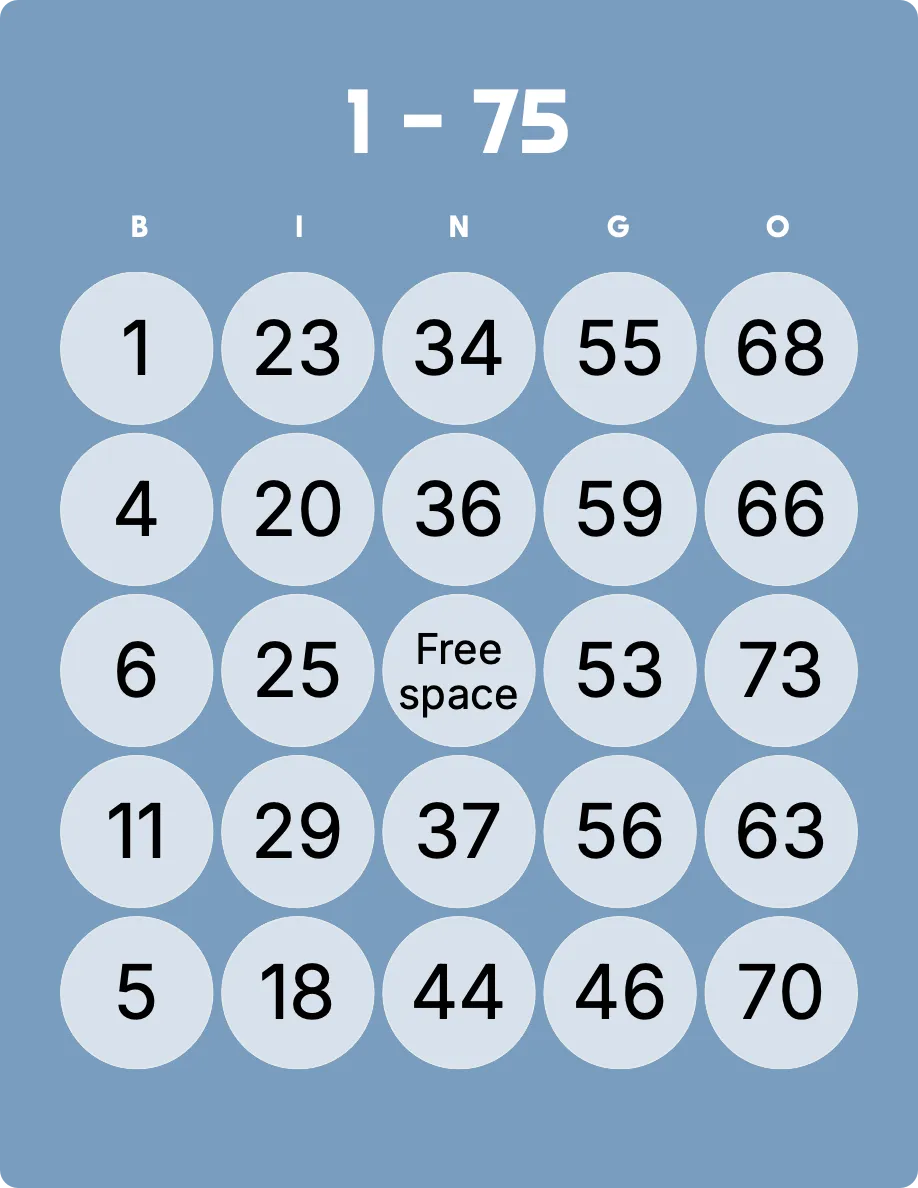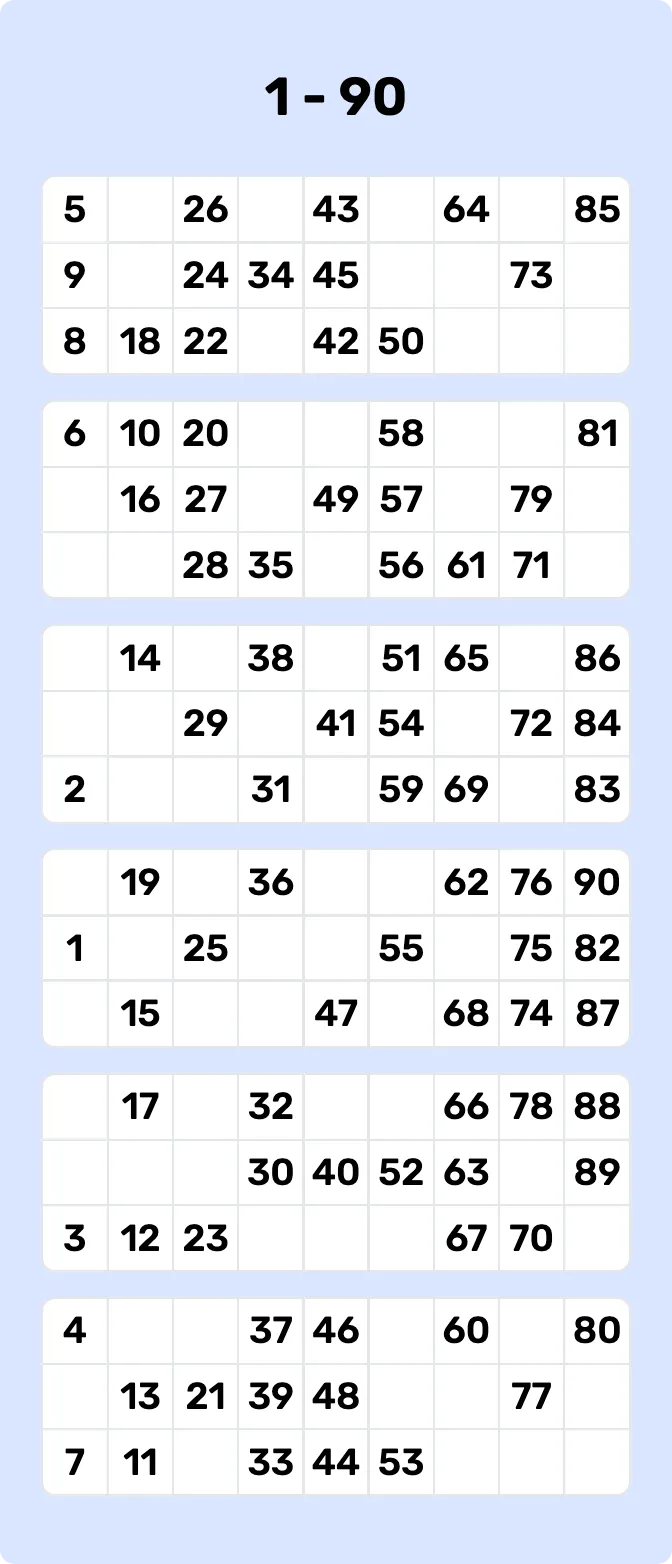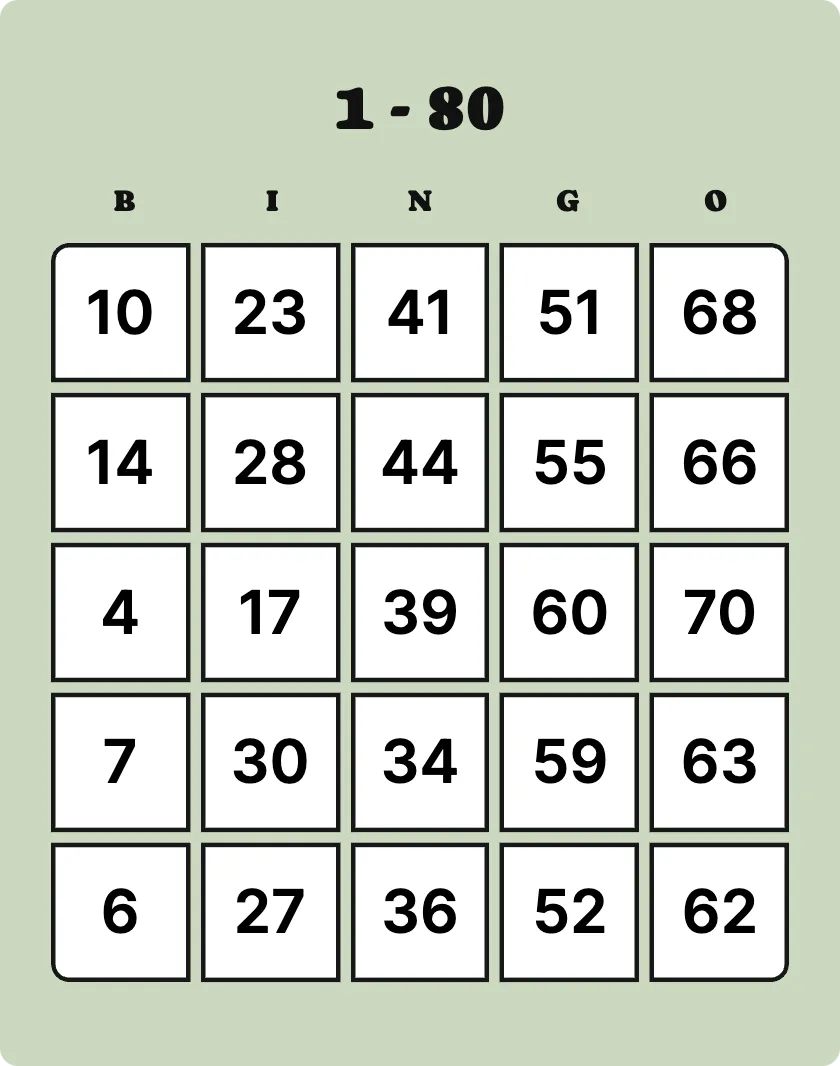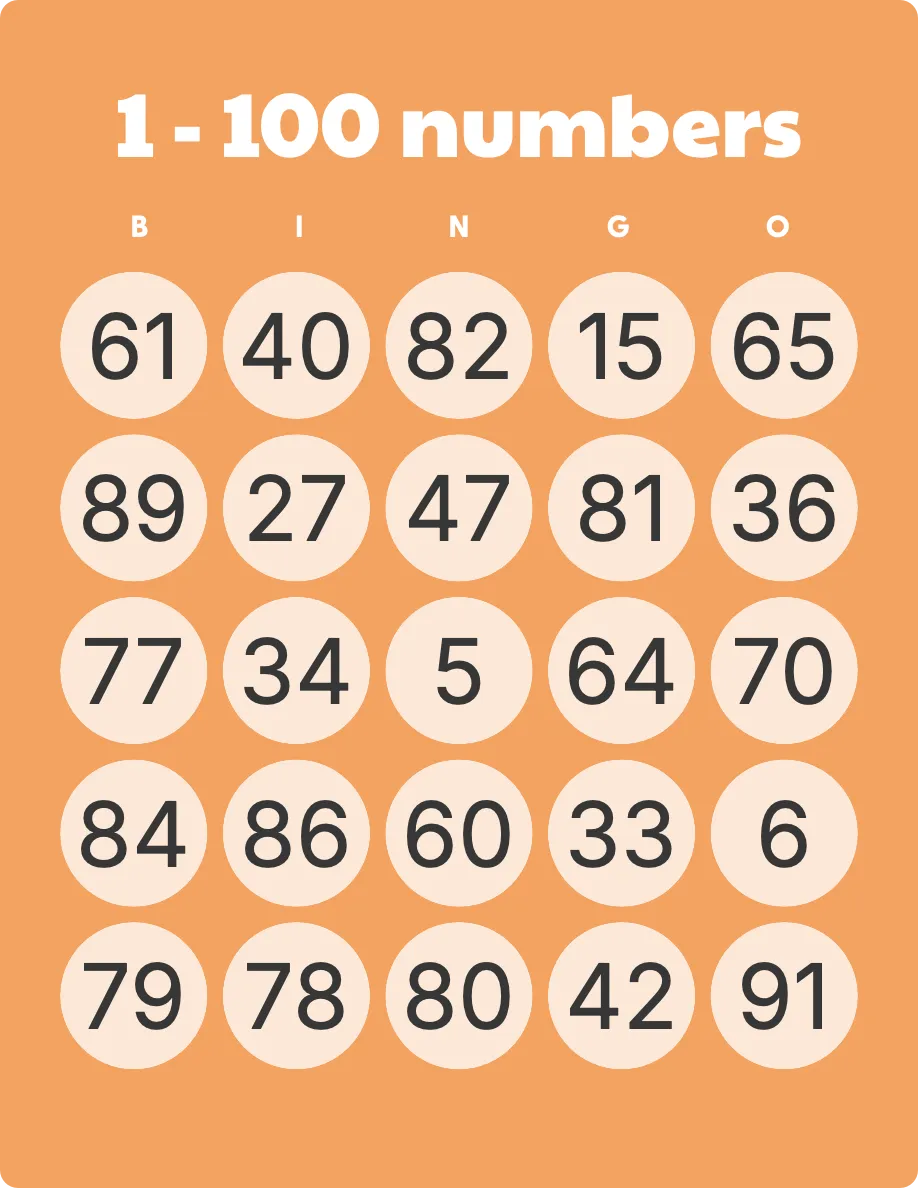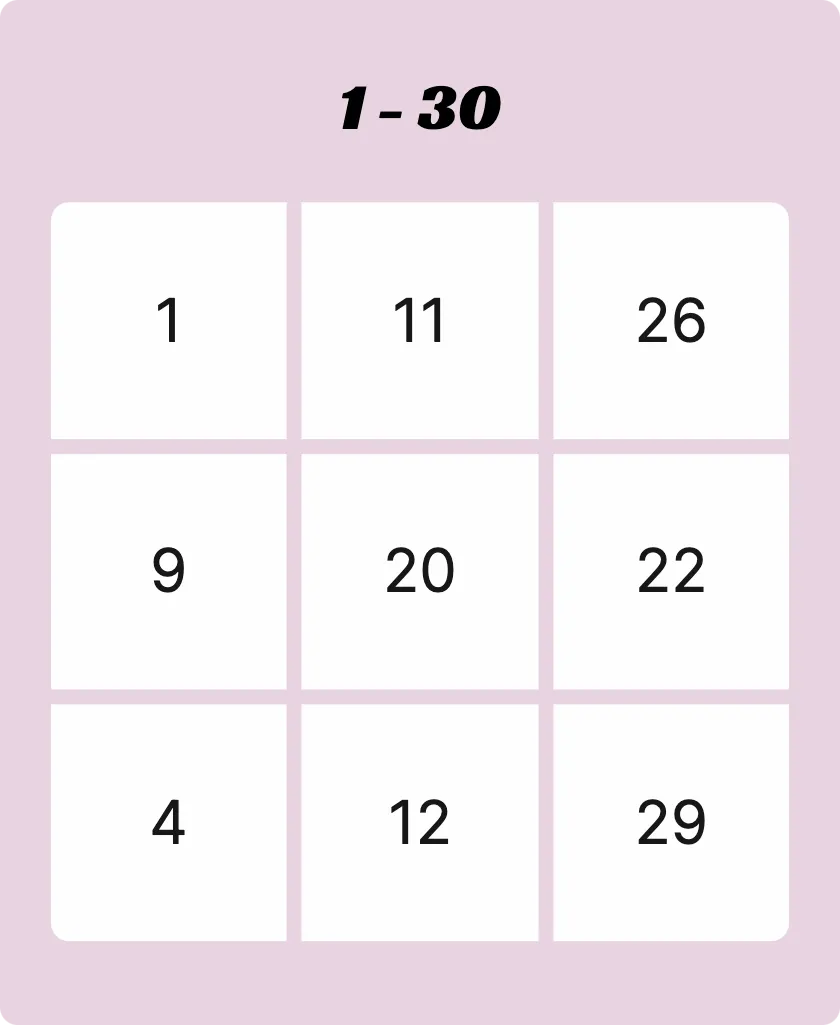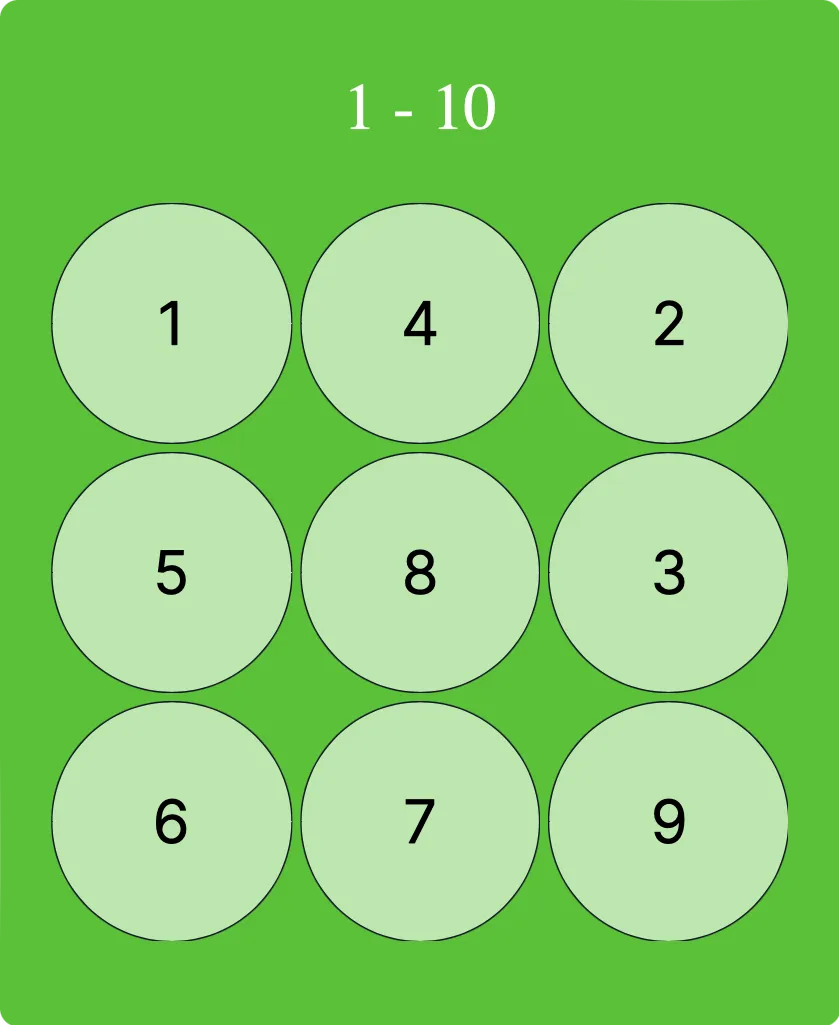25 preschool math games for mathematicians-in-training
Discover 25 engaging pre-school math games that make numbers fun! From jump-rope counting to shape-matching bingo, turn playtime into a learning adventure for tiny mathematicians.
- Reading Time
- 11 min read
- Publish Date
- Oct 19, 2023
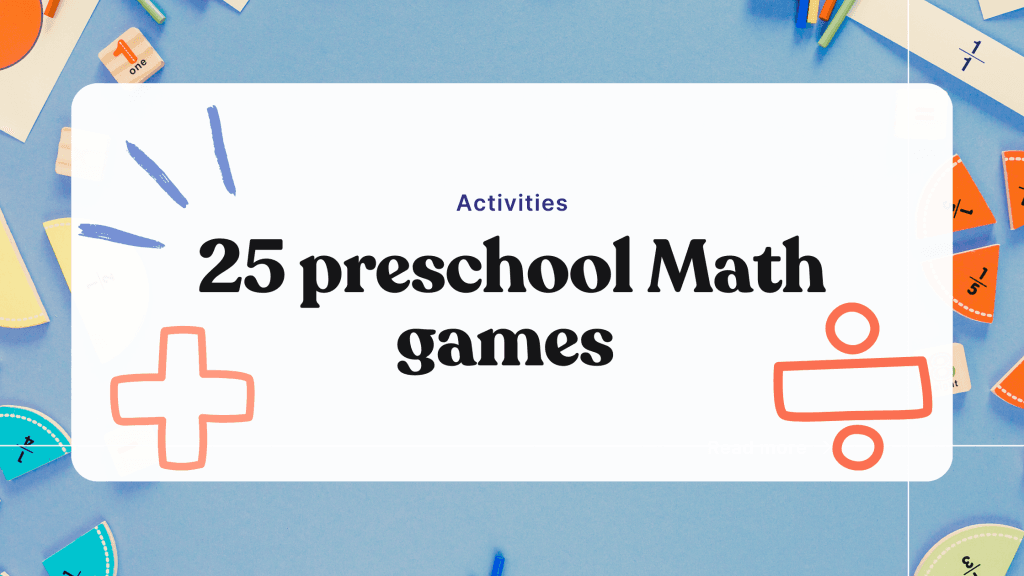
Table of contents
- 1. Counting the Jump-Rope Way
- 2. Fruit Salad Sorting
- 3. Picture Card Addition
- 4. Number Fishing
- 5. Musical Math Chairs
- 6. Zookeeper's Count
- 7. Grocery Store Cashier
- 8. Bucket Toss & Count
- 9. Stacking Tower
- 10. Shape Hunt
- 11. Bean Bag Toss
- 12. Clock Reading
- 13. Pizza Fraction
- 14. Shape Matching Bingo
- 15. Dot-to-Dot Adventure
- How to Play:
- 16. Balloon Pop Countdown
- 17. Nature Count
- 18. Rolling the Dice
- 19. Star Gazing
- 20. Cooking Measurement
- 21. Odd-Even Jump
- 22. Water Transfer
- 23. Measure Up
- 24. Number Hide & Seek
- 25. Coin Sort
- Summary
Hey there, Parents and Teachers! Ready to take your kids on a number-filled adventure without making it feel like a snooze-fest? Let’s turn the playtime tables around and make math fun. Yep, you heard it right, math can be fun, especially with these 25 hands-on preschool math games.
1. Counting the Jump-Rope Way

Swing into numbers with Counting the Jump-Rope Way! This fun game merges the classic joy of jump-roping with the fundamental skill of counting. It's an exhilarating way to internalize numbers while developing motor skills. So grab a jump-rope and hop into counting!
How to Play:
Every time the rope swings, kids shout out a number. Whoever forgets or stumbles has to start back from one.
Top tip
Make it a theme day by designing jump-rope specific bingo cards. With our bingo card generator, create cards with numbers up to 20 or 30. As the numbers get called out during jumping, mark them off the card.
Or - why not check out some of our pre-made number themed bingo cards?
Number bingo
2. Fruit Salad Sorting
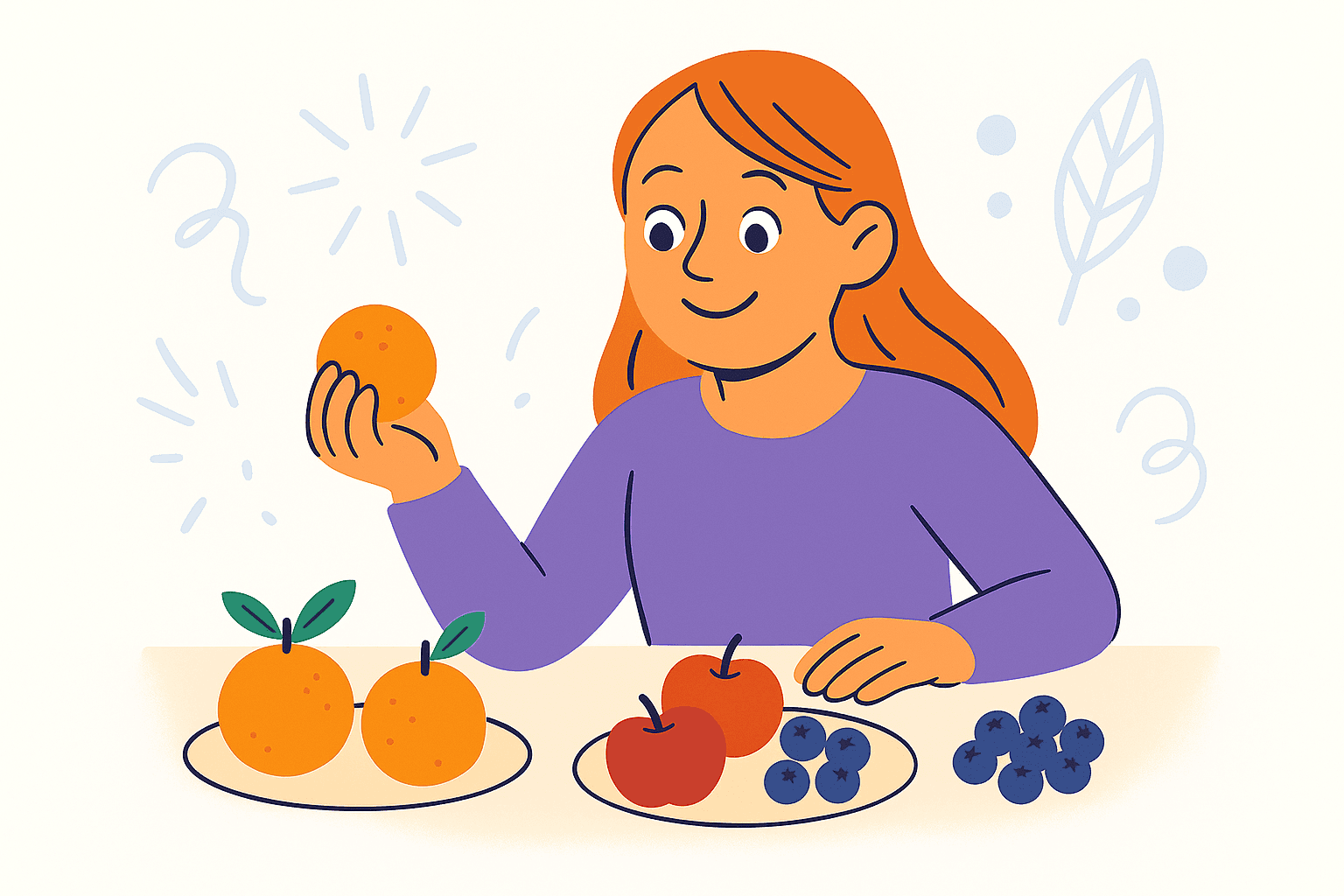
Healthy and educational—this fruit salad game is a double win. Sorting fruits can help kids understand categories. It’s a delicious way to introduce the concept of sorting and counting.
How to Play:
Kids will sort fruits into different bowls by type or color. Make it a timed challenge for added excitement.
3. Picture Card Addition
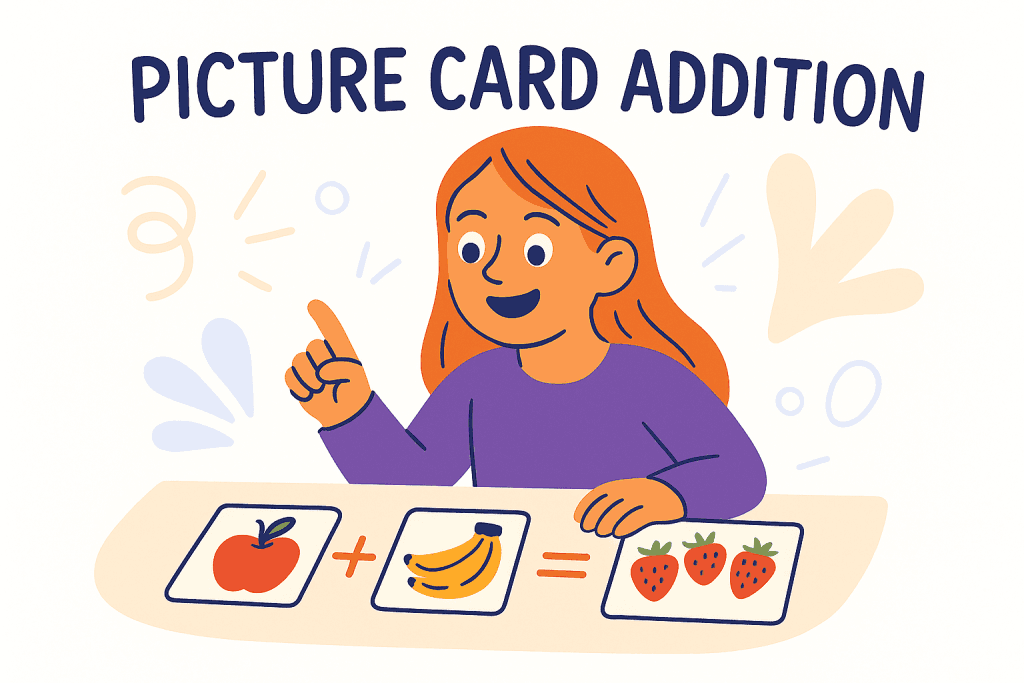
Who knew Math could be so picturesque? This game uses picture cards to make addition more visual. So, let's shuffle up some cards and make math a picture-perfect adventure!
How to Play:
Kids will draw two cards, count the objects in the pictures, and add them together.
Top tip
Why not swap out regular cards with emoji or picture bingo cards? You can easily make these by customizing your grid sizes and pictures.
4. Number Fishing
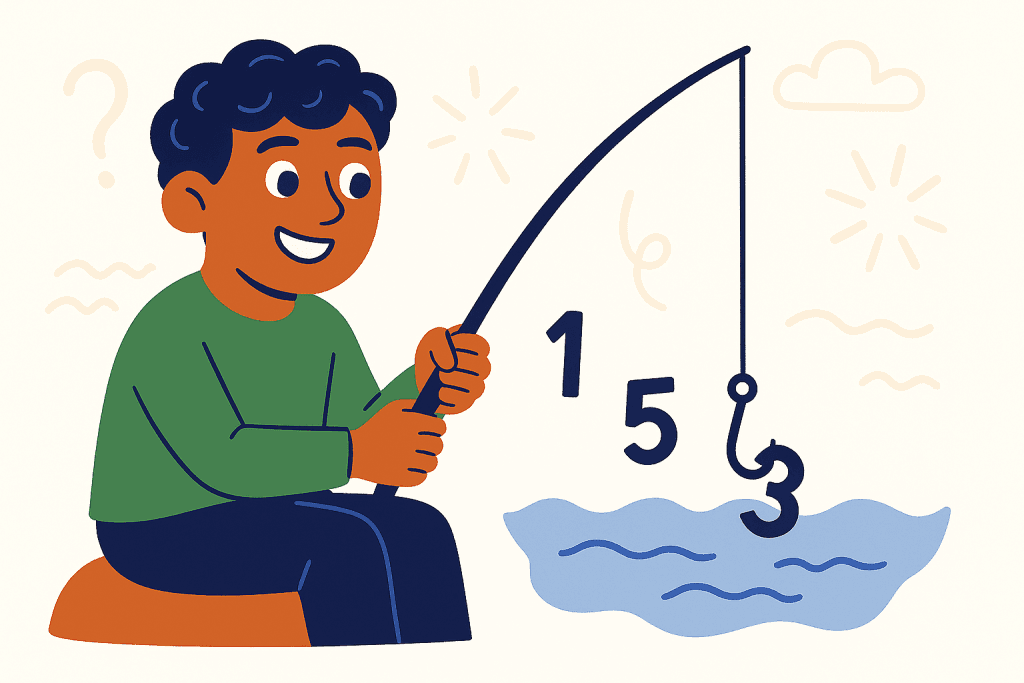
Gone fishing? More like, gone counting! Number Fishing adds a splash of excitement to learning numbers. Equip your young ones with a toy fishing rod, and they can "catch" the fish. Once caught, they identify the number or even add it to another caught number. It’s math made so fun; they won’t even realize they’re learning!
How to Play:
Write numbers on paper cards and attach a paperclip to each. Make a "fishing rod" from a stick and a magnet. Now fish for numbers, read them out loud, and even add them up for a total score!
5. Musical Math Chairs
Just when you thought musical chairs couldn’t get any better, we introduce Musical Math Chairs! But here's the twist: each chair has a math problem or number attached to it. When the music stops, not only do you have to grab a seat, but you also have to solve the math problem on it. It’s a rhythmic way to make math a part of the fun and games!
How to Play:
Place number cards on each chair before starting the music. When the music stops, kids scramble to a chair, pick up the card, and shout the number loud and proud.
6. Zookeeper's Count
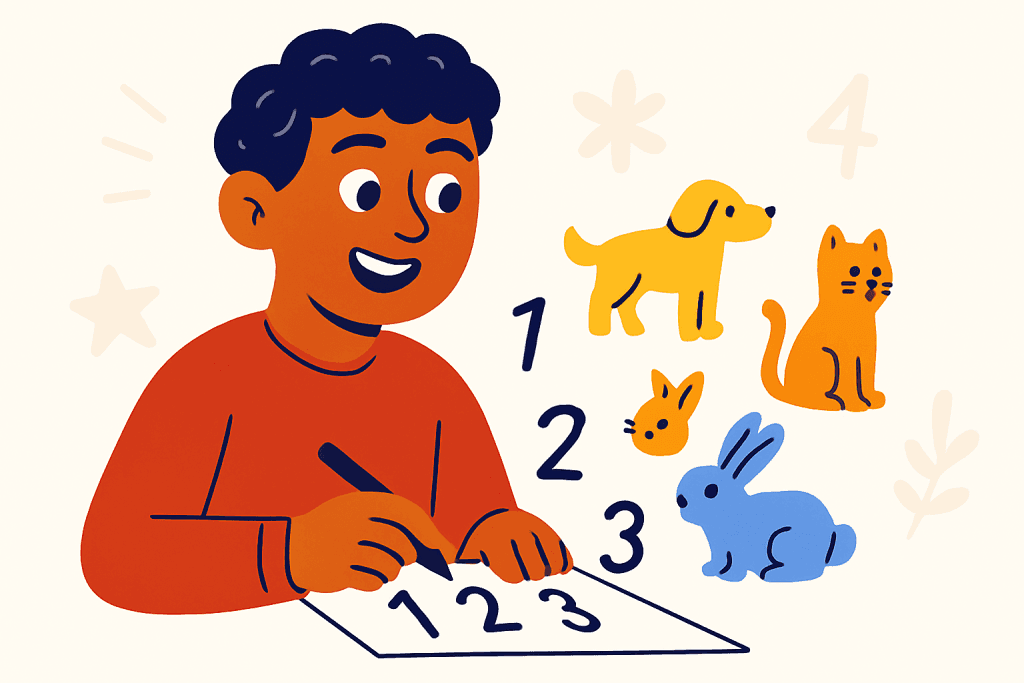
Ever wondered how zookeepers keep track of all those animals? In Zookeepers Count, children become pretend zookeepers in charge of counting different types of toy animals like lions, elephants, and penguins. They can sort them, group them, and of course, count them. It’s an imaginative journey into the world of numbers, adding a wild twist to counting exercises.
How to Play:
Set up an imaginary zoo with different animal figurines in various “enclosures.” Kids will rotate being the zookeeper, counting the animals in each area.
7. Grocery Store Cashier

Shopping can be educational, too. Put on your apron and man the cash register. We’ve got customers lining up, and they’re paying with numbers!
How to Play:
Kids act as cashiers, adding up the prices of different items and giving back change.
Top tip
Use play money with different denominations to familiarize kids with basic concepts of money and change.
8. Bucket Toss & Count

Ready, set, toss! In Bucket Toss and Count, little ones can throw beanbags into different buckets and then count how many made it in. It's a fantastic way to blend physical activity with counting skills, making math a ball—literally!
How to Play:
Arrange buckets with different numbers at varying distances. Toss balls into the buckets and add up the scores based on the bucket numbers
9. Stacking Tower

Welcome to the world's most educational construction site! Children stack blocks while counting each level to see how high their towers can go. Not only do they learn about numbers, but they also get a lesson in balance and structural integrity.
How to Play:
Take blocks with numbers written on them and stack them up one by one. As each block is added, count aloud how high the tower is getting until, alas, it topples!
10. Shape Hunt
Ready for a geometric adventure? Kids go on a scavenger hunt to find various shapes hidden around the house or yard. It's a dynamic way for them to learn shape names and properties while satisfying their inner explorer.
How to Play:
Hide different shapes around the room or yard. Each kid must find and identify the shapes within a set time.
11. Bean Bag Toss
It's a classic game but with a mathematical twist. Each bean bag represents a number.
How to Play:
Each basket gets a number. Kids take turns tossing bean bags into the baskets, then they add or subtract their scores based on which basket they land in.
12. Clock Reading

Tick-tock goes the learning clock! Children learn to read analog and digital clocks while playing interactive games. It's about time your child masters the art of telling time, and this game makes it a joyous journey.
How to Play:
Set different times on a clock. Kids take turns reading the clock. Make it a race to see who's the quickest time teller.
13. Pizza Fraction
Slice up some delicious math education! In Pizza Fraction, kids serve up pretend pizzas while learning about fractions. A yummy way to introduce a vital mathematical concept.
How to Play:
Divide a pretend pizza into slices and ask kids to identify the fractions as they "eat" slices.
14. Shape Matching Bingo
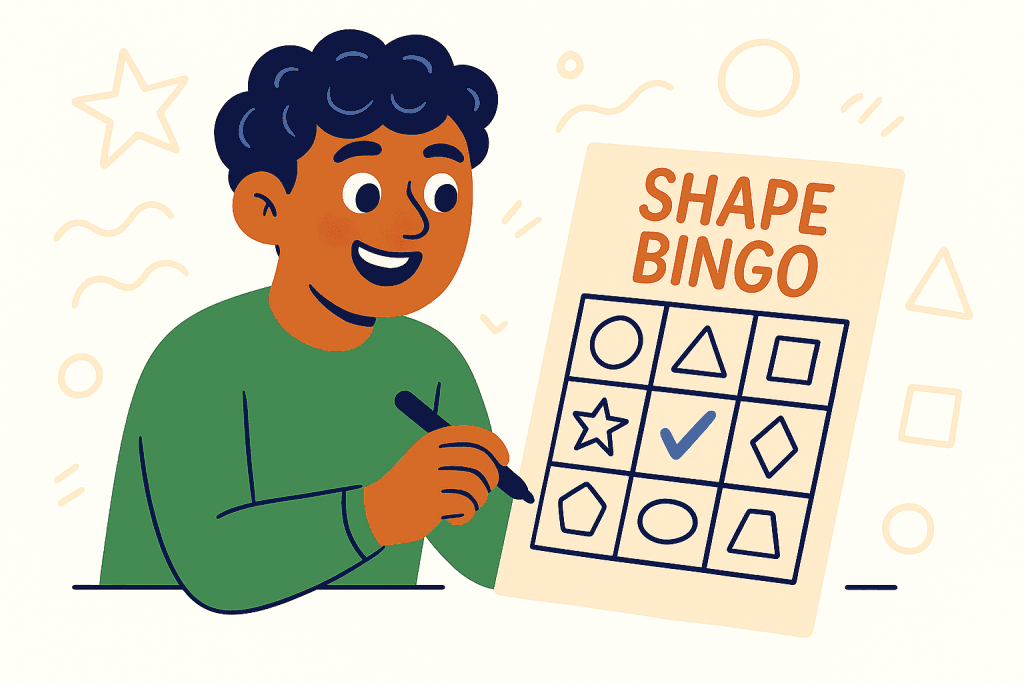
Who says bingo is only for numbers? Turn this classic game on its head and enter the world of geometric magic. Perfect for kiddos who love a good matching game!
How to Play:
Create shape-based bingo cards, or use our pre-made basic shaped bingo card. Call out shapes and have kids mark them off.
15. Dot-to-Dot Adventure
Connect the dots, and voila—a mathematical masterpiece appears! Kids improve their counting skills while discovering hidden pictures. It's the classic game you loved as a child, now with an educational twist.
How to Play:
Give kids a dot-to-dot sheet. As they connect the dots, they must also count them out loud, revealing a fun picture at the end.
16. Balloon Pop Countdown

3, 2, 1—Pop! Balloon Pop Countdown is a suspenseful and fun way for children to practice counting backward. Each balloon has a number, and the goal is to pop them in descending order.
How to Play:
Write numbers on balloons and inflate them. Kids take turns popping the balloons and must shout out the number as they pop it.
17. Nature Count

Get ready for an outdoor math expedition! Nature Count encourages kids to count elements found in nature, like leaves, rocks, or flowers. It's a refreshing way to merge math with Mother Nature.
How to Play:
Collect leaves, rocks, or flowers during a nature walk. Back at home, group and count your treasure.
18. Rolling the Dice
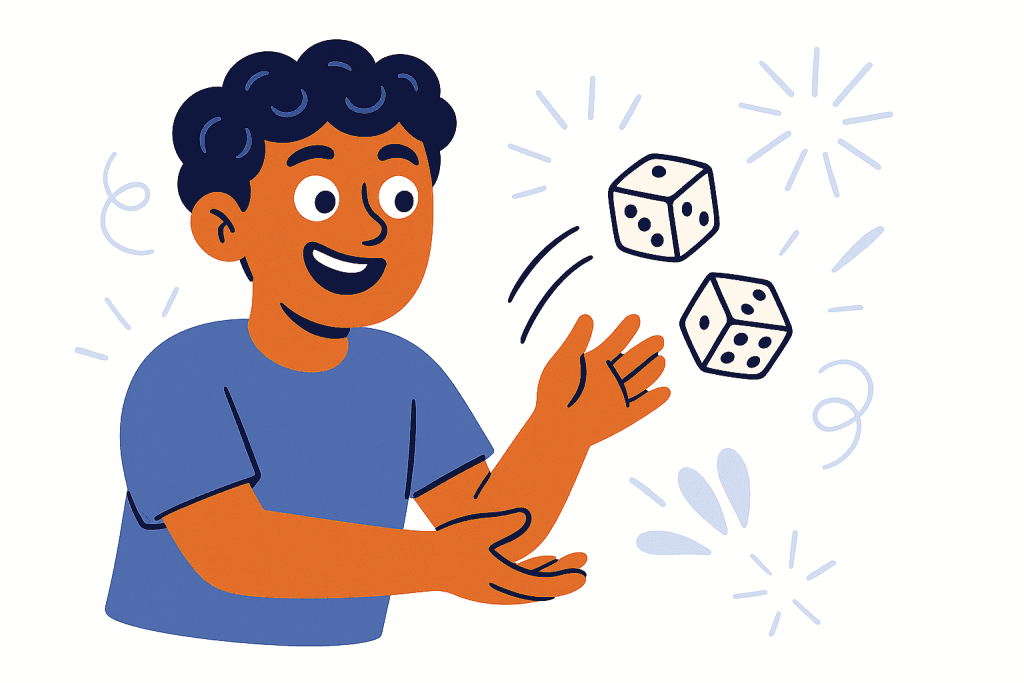
Rolling dice isn’t just for board games; it’s a one-way ticket to Additionville and Subtractiontown. Roll your way to math proficiency!
How to Play:
Each kid rolls two dice and performs either an addition or subtraction operation with the numbers, based on your preset rules.
19. Star Gazing

Look up; it's a bird, it's a plane, no—it's geometry! Star Gazing isn't just for night owls; this game uses star-shaped cutouts to help kids identify shapes and patterns. As they arrange the stars into constellations, they'll be learning spatial awareness without even realizing it.
How to Play:
Lay a mat on the ground and scatter star-shaped cutouts across it to serve as your "sky." Children can then connect these "stars" to form their own constellations, either by drawing imaginary lines with their fingers or using string. To add an educational twist, label the stars with numbers or simple math problems that kids must solve as they connect them.
20. Cooking Measurement
Whip out those measuring cups; it's time to cook up some math! Cooking Measurement turns your kitchen into a classroom where kids can learn about volume, ratios, and following instructions. Plus, the delicious end result makes this lesson extra rewarding!
How to Play:
Lay out the ingredients for a simple recipe. Have your mini chefs read out the measurements as they add each ingredient to the mix.
Top tip
Use different measuring spoons and cups to introduce the concept of fractions.
21. Odd-Even Jump
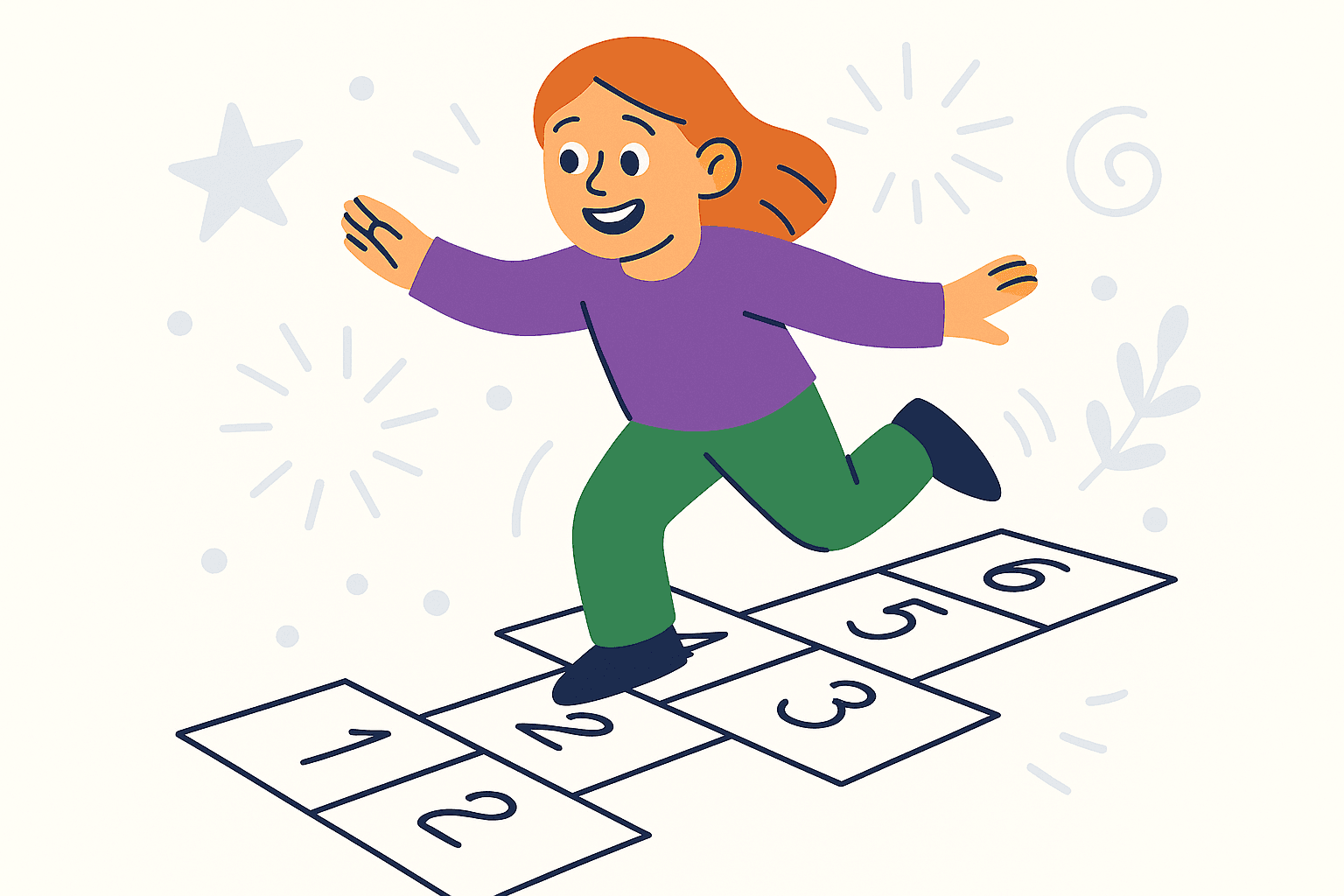
Jump to it! In Odd-Even Jump, kids hop from one square to another while identifying if the numbers they land on are odd or even. It's a dynamic way to get those little legs moving and those big brains buzzing.
How to Play:
Mark the squares with odd and even numbers. As kids hop from square to square, they have to identify whether the number is odd or even.
22. Water Transfer
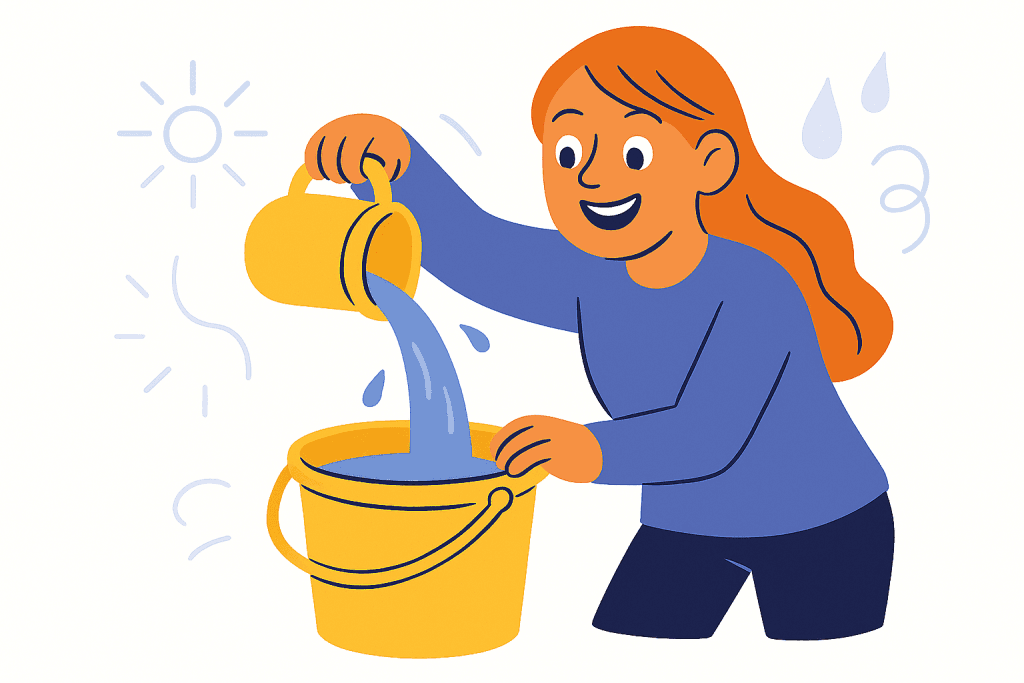
Get ready to make a splash with Water Transfer! This game involves transferring water from one container to another using various tools like cups or spoons. It's a wet and wild way to teach kids about volume and estimation.
How to Play:
Fill one large container with water. Using various sizes of cups, the kids transfer water to another container, focusing on how much each cup holds.
Top Tip: Make it a timed challenge to add an extra layer of excitement.
23. Measure Up

How tall is that chair? How long is this book? In Measure Up, kids use everyday objects like blocks or paper clips to measure things around them. It's a hands-on approach to understanding length and height, and it turns the whole world into a math playground.
How to Play:
Give your kids a ruler or a tape measure and let them go around the house measuring the length, width, or height of different objects.
24. Number Hide & Seek
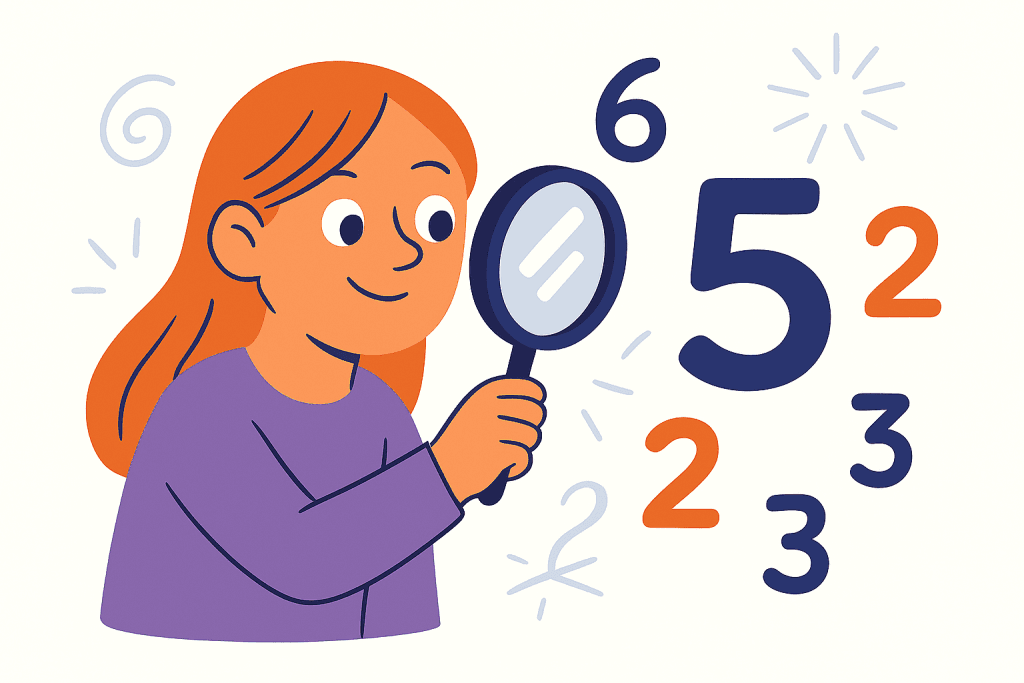
Who knew numbers were so good at hiding? In Number Hide and Seek, kids search for numbers hidden around the room. Whether they're tucked inside books or stuck under chairs, finding each number becomes a thrilling treasure hunt.
How to Play:
Stash cards with numbers around the room. Kids go on a scavenger hunt to find them and shout out the numbers they find.
25. Coin Sort
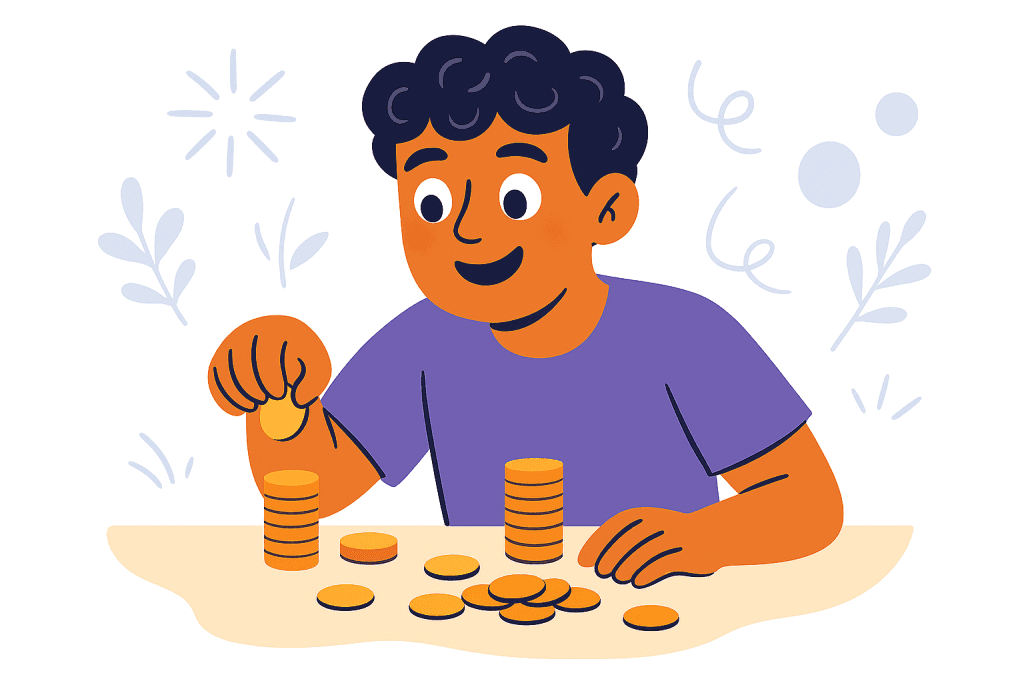
Cha-ching! Coin Sort turns pocket change into a learning game. Kids can sort coins by size, value, or even by the pictures on them. It's a shiny way to introduce concepts of money and categorization.
How to Play:
Scatter a pile of coins on the table. Task your kiddos with sorting the coins by their value and counting them up.
Top tip
Use this opportunity to introduce the concept of saving. A piggy bank can be more than just a cute decoration!
Summary
Alright, math wizards and wonder parents, you're all set! Remember, every game is a step toward making your kiddo a mathlete. Enjoy your numbers game!
Was this article helpful?
Comments

Log into Bingo Card Creator
Log in to share your opinion about this article
Get this week's best Bingo content.

Related articles
Browse all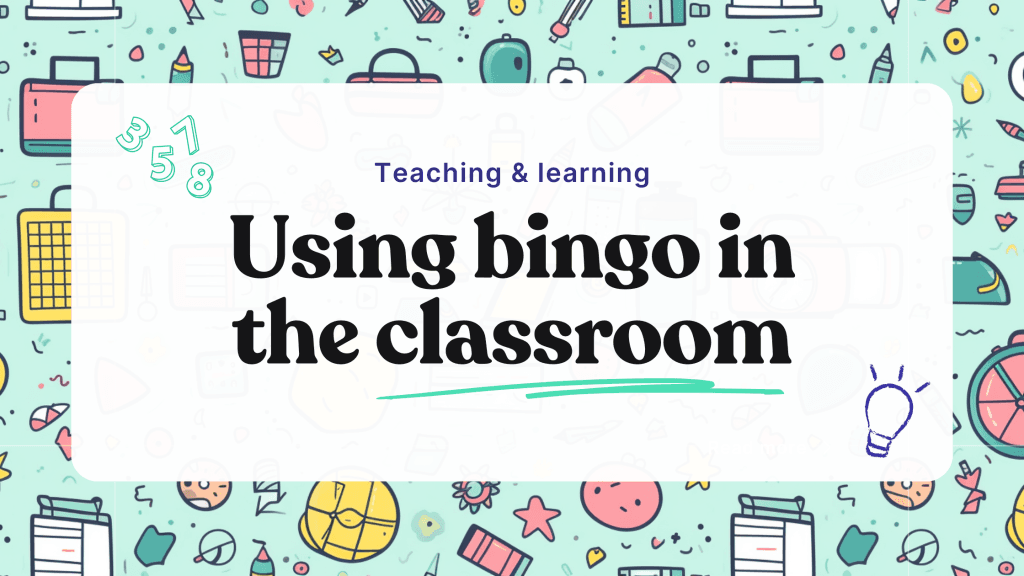
Bingo in the classroom: A fun & educational tool
Bingo in the classroom transforms learning into an engaging game. Customizable cards for subjects like Math, Science, and Language Arts make lessons fun, inclusive, and interactive for all students.
11 min read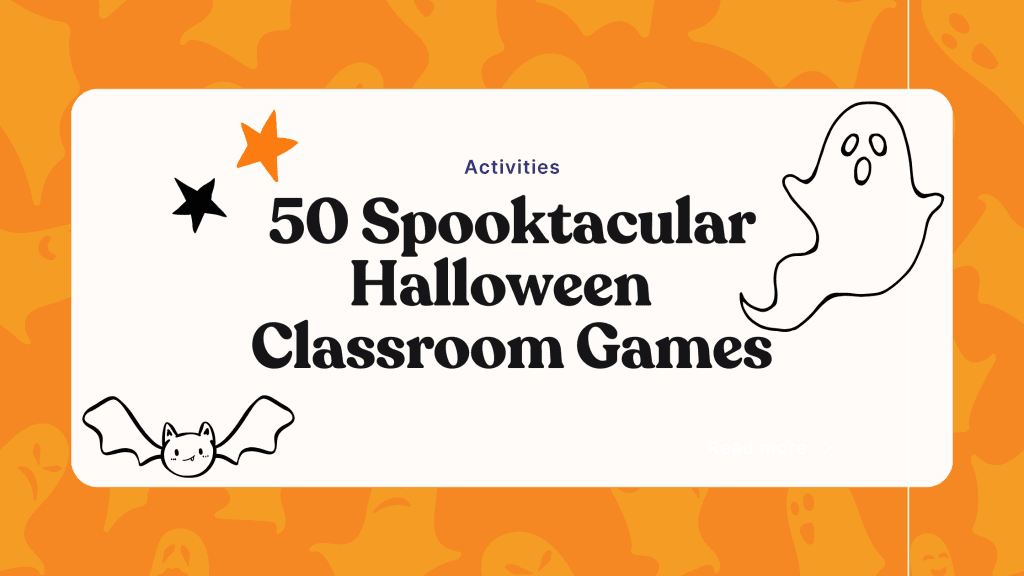
50 spooktacular Halloween games for the classroom
Unearth 50 fun and educational Halloween classroom games that’ll make your spooky season a hit. From math bingo to haunted scavenger hunts, it’s frightfully delightful!
10 min read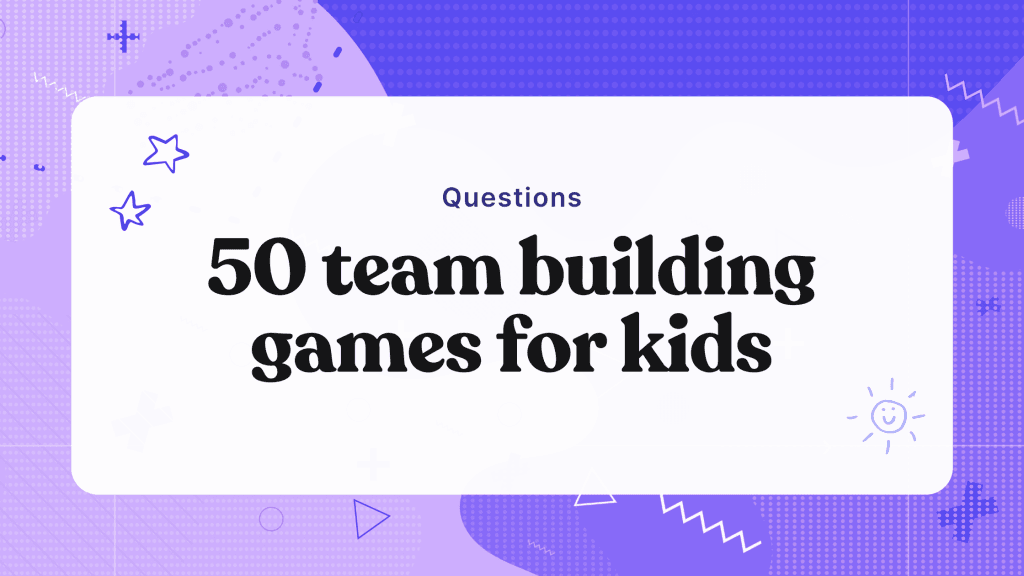
50 team building games for kids
Unearth the ultimate guide to 50 team-building games for kids, where fun meets valuable life lessons in teamwork, communication, and problem-solving.
15 min read

